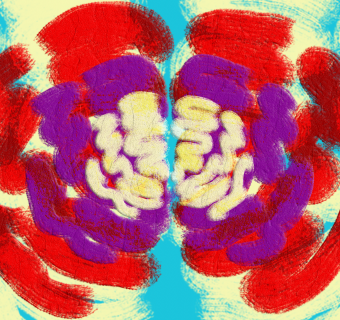Human Papilloma Virus (HPV), is the most common sexually transmitted infection. Each year, approximately 79 million Americans are infected, with the majority of the cases being seen among people in their late teens and early 20s. One reason why HPV is so prevalent is that many infected individuals experience few to no symptoms and unknowingly pass the infection on to their partners. There are more than 40 strains of the virus which is typically contracted through vaginal, oral and/or anal sex.
While HPV, unlike other STIs, may cause very little disruption to daily life, the risk associated with it can be life-changing. HPV can lead to the development of certain cancers – most commonly cervical cancer in women and oropharyngeal cancer in men. The formerly dismal outlook is improving, however.  New studies are showing that, since the HPV vaccine was introduced in 2006, the rate of infection among teenagers 14-19 years of age has significantly decreased. Currently, the CDC recommends that children age 11-12 receive the first of three doses of the vaccine with the remaining two occurring within six months. So far, only about half of all girls in the United States (and even fewer boys) have been vaccinated. Naturally, being vaccinated is a personal choice but CDC director, Tom Frieden, weighed in on the issue: “This report shows that HPV vaccine works well, and the report should be a wake-up call to our nation to protect the next generation by increasing HPV vaccination rates. Unfortunately only one third of girls aged 13-17 have been fully vaccinated with HPV vaccine. Countries such as Rwanda have vaccinated more than 80 percent of their teen girls. Our low vaccination rates represent 50,000 preventable tragedies – 50,000 girls alive today will develop cervical cancer over their lifetime that would have been prevented if we reach 80 percent vaccination rates. For every year we delay in doing so, another 4,400 girls will develop cervical cancer in their lifetimes.” Dr. Lauri Markowitz, who conducted the study, added that the success of the vaccine “is encouraging, given the substantial health and economic burden of HPV-associated disease.” For more information, visit the CDC’s official page on Human Papilloma Virus. Image Credit: http://tinyurl.com/m4h79ch By Jeanne Dupuis.
New studies are showing that, since the HPV vaccine was introduced in 2006, the rate of infection among teenagers 14-19 years of age has significantly decreased. Currently, the CDC recommends that children age 11-12 receive the first of three doses of the vaccine with the remaining two occurring within six months. So far, only about half of all girls in the United States (and even fewer boys) have been vaccinated. Naturally, being vaccinated is a personal choice but CDC director, Tom Frieden, weighed in on the issue: “This report shows that HPV vaccine works well, and the report should be a wake-up call to our nation to protect the next generation by increasing HPV vaccination rates. Unfortunately only one third of girls aged 13-17 have been fully vaccinated with HPV vaccine. Countries such as Rwanda have vaccinated more than 80 percent of their teen girls. Our low vaccination rates represent 50,000 preventable tragedies – 50,000 girls alive today will develop cervical cancer over their lifetime that would have been prevented if we reach 80 percent vaccination rates. For every year we delay in doing so, another 4,400 girls will develop cervical cancer in their lifetimes.” Dr. Lauri Markowitz, who conducted the study, added that the success of the vaccine “is encouraging, given the substantial health and economic burden of HPV-associated disease.” For more information, visit the CDC’s official page on Human Papilloma Virus. Image Credit: http://tinyurl.com/m4h79ch By Jeanne Dupuis.






